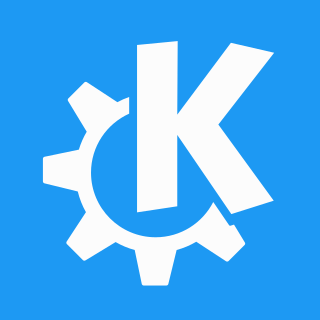
KDE is an international free software community that develops free and open-source software. As a central development hub, it provides tools and resources that enable collaborative work on its projects. Well-known products include the Plasma Desktop, KDE Frameworks, and a range of applications such as Kate, digiKam, and Krita. Some KDE applications are cross-platform and can run on Unix and Unix-like operating systems, Microsoft Windows, and Android.

Calligra Suite is a graphic art and office suite by KDE. It is available for desktop PCs, tablet computers, and smartphones. It contains applications for word processing, spreadsheets, presentation, databases, vector graphics, and digital painting.

The GNU Project is a free software, mass collaboration project announced by Richard Stallman on September 27, 1983. Its goal is to give computer users freedom and control in their use of their computers and computing devices by collaboratively developing and publishing software that gives everyone the rights to freely run the software, copy and distribute it, study it, and modify it. GNU software grants these rights in its license.

Calligra Stage is a free presentation program that is part of the Calligra Suite, an integrated office suite developed by KDE.
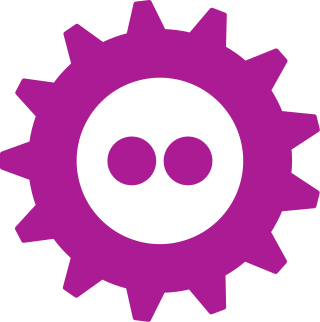
Free and Open source Software Developers' European Meeting (FOSDEM) is a non-commercial, volunteer-organized European event centered on free and open-source software development. It is aimed at developers and anyone interested in the free and open-source software movement. It aims to enable developers to meet and to promote the awareness and use of free and open-source software.
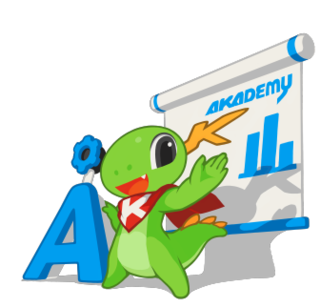
Akademy is an annual contributors and users conference of the KDE community. Akademy is held at varying venues in Europe.

The Linux Foundation (LF) is a non-profit organization established in 2000 to support Linux development and open-source software projects.

FreedomBox is a free software home server operating system based on Debian, backed by the FreedomBox Foundation.

ownCloud, a Kiteworks Company, is a free and open-source software project for content collaboration and sharing and syncing of files in distributed and federated enterprise scenarios. It allows companies and remote end-users to organize their documents on servers, computers, and mobile devices and work with them collaboratively while keeping a centrally organized and synchronized state.

OpenShift is a family of containerization software products developed by Red Hat. Its flagship product is the OpenShift Container Platform — a hybrid cloud platform as a service built around Linux containers orchestrated and managed by Kubernetes on a foundation of Red Hat Enterprise Linux. The family's other products provide this platform through different environments: OKD serves as the community-driven upstream, Several deployment methods are available including self-managed, cloud native under ROSA, ARO and RHOIC on AWS, Azure, and IBM Cloud respectively, OpenShift Online as software as a service, and OpenShift Dedicated as a managed service.
Blue Systems is a German IT company. It is most prominent as a major KDE supporter and previous driving force behind Kubuntu with a number of KDE developers working for Blue Systems. According to Blue Systems employee Aurélien Gâteau, "Blue Systems does not have a business model, at least for now".

Trojitá is a free software IMAP and SMTP email client developed using the Qt C++ library. The design goals of the maintainers are to develop a fast e-mail client which respects open standards, is cross-platform and uses the available resources very efficiently.

Snap is a software packaging and deployment system developed by Canonical for operating systems that use the Linux kernel and the systemd init system. The packages, called snaps, and the tool for using them, snapd, work across a range of Linux distributions and allow upstream software developers to distribute their applications directly to users. Snaps are self-contained applications running in a sandbox with mediated access to the host system. Snap was originally released for cloud applications but was later ported to also work for Internet of Things devices and desktop applications.

KDE neon is a Linux distribution developed by KDE based on Ubuntu long-term support (LTS) releases, bundled with a set of additional software repositories containing the latest versions of the Plasma 6 desktop environment/framework, Qt 6 toolkit and other compatible KDE software. First announced in June 2016 by Kubuntu founder Jonathan Riddell following his departure from Canonical Ltd., it has been adopted by a steadily growing number of Linux users, regularly appearing in the Top 20 on DistroWatch.com's popularity tables.
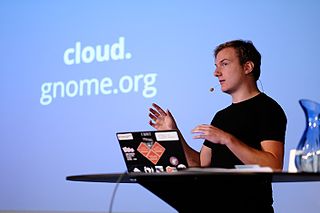
Jan-Christoph Borchardt is a German open source interaction designer. He is primarily known for his work on Open Source Design, Terms of Service; Didn't Read, ownCloud, and now Nextcloud.

Nextcloud is a suite of client-server software for creating and using file hosting services. Nextcloud provides functionality similar to Dropbox, Office 365 or Google Drive when used with integrated office suites Collabora Online or OnlyOffice. It can be hosted in the cloud or on-premises. It is scalable, from home office software based on the low cost Raspberry Pi, all the way through to full sized data centers that support millions of users. Translations in 60 languages exist for web interface and client applications.
The Cloud Native Computing Foundation (CNCF) is a Linux Foundation project that was started in 2015 to help advance container technology and align the tech industry around its evolution.

Collabora Online is an open source online office suite built on LibreOffice technology, enabling web-based collaborative real-time editing of word processing documents, spreadsheets, presentations, and vector graphics. Optional apps are available for desktops, laptops, tablets, smartphones, and Chromebooks.
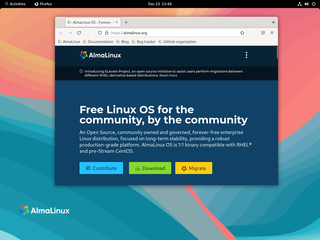
AlmaLinux is a free and open source Linux distribution, developed by the AlmaLinux OS Foundation, a 501(c) organization, to provide a community-supported, production-grade enterprise operating system that is binary-compatible with Red Hat Enterprise Linux (RHEL). The name of the distribution comes from the word "alma", meaning "soul" in Spanish and other Latin languages. It was chosen to be a homage to the Linux community.


















